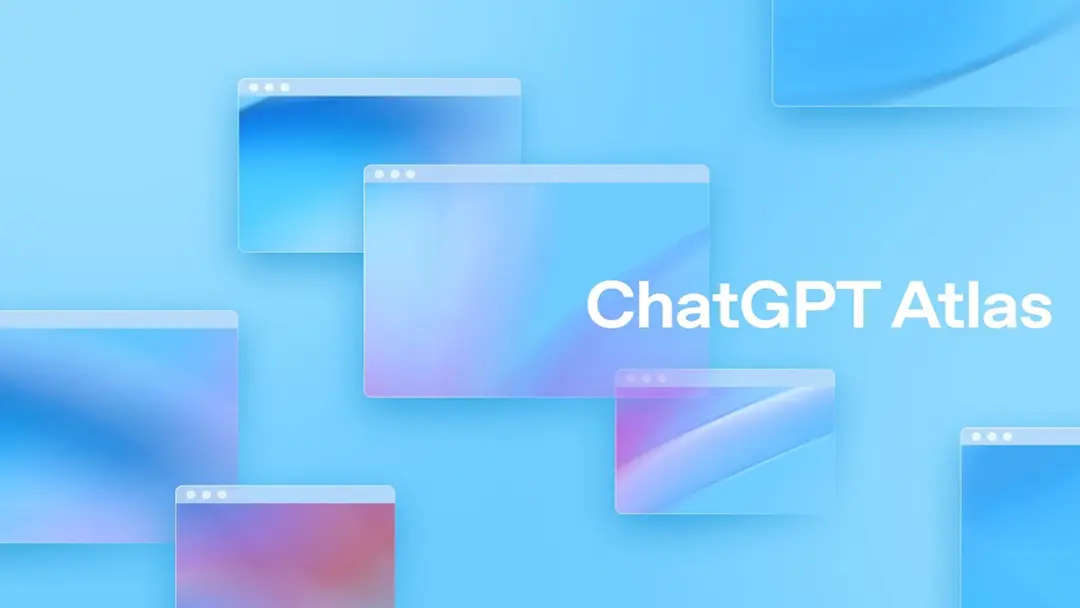
OpenAI: ChatGPT Atlas
ChatGPT Atlas è il browser web basato sull'IA di OpenAI che integra ChatGPT direttamente nell'esperienza di navigazione, consentendo agli utenti di interagire con ChatGPT ovunque sul web fornendo al contempo funzionalità come la sintesi di pagine web, l'automazione delle attività e l'assistenza personalizzata.
https://openai.com/?utm_source=aipure

Informazioni sul Prodotto
Aggiornato:Nov 16, 2025
Tendenze del traffico mensile di OpenAI: ChatGPT Atlas
OpenAI: ChatGPT Atlas ha ricevuto 373.8m visite il mese scorso, dimostrando un Leggero Calo del -10.1%. In base alla nostra analisi, questo trend è in linea con le tipiche dinamiche di mercato nel settore degli strumenti AI.
Visualizza storico del trafficoCos'è OpenAI: ChatGPT Atlas
Lanciato il 21 ottobre 2025, ChatGPT Atlas è il primo browser web di OpenAI costruito attorno alla sua popolare tecnologia ChatGPT. Inizialmente disponibile su macOS con versioni pianificate per Windows, iOS e Android, Atlas rappresenta la visione di OpenAI per un'esperienza di navigazione più intuitiva e nativa dell'IA che porta le funzionalità di ChatGPT direttamente nelle interazioni web degli utenti. Il browser è disponibile a livello globale e gratuito, con alcune funzionalità avanzate come la modalità agente riservate agli abbonati Plus e Pro. Con oltre 800 milioni di utenti attivi settimanali di ChatGPT che potenzialmente passano a questa nuova piattaforma, Atlas segna la sfida più diretta di OpenAI ai giganti dei browser affermati come Google Chrome.
Caratteristiche principali di OpenAI: ChatGPT Atlas
ChatGPT Atlas è il nuovo browser web di OpenAI basato sull'intelligenza artificiale che integra ChatGPT direttamente nell'esperienza di navigazione. Costruito su Chromium, è dotato di una barra laterale di ChatGPT che aiuta gli utenti su qualsiasi pagina web, offrendo assistenza in linea, riepilogo dei contenuti e automazione delle attività tramite la modalità agente. Il browser include memorie del browser opzionali per esperienze personalizzate e consente a ChatGPT di intraprendere azioni per conto degli utenti mantenendo la privacy e il controllo dell'utente.
Integrazione della Barra Laterale di ChatGPT: Un pulsante "Chiedi a ChatGPT" che apre una barra laterale di accompagnamento che consente agli utenti di interagire con ChatGPT su qualsiasi contenuto della pagina web senza lasciare la pagina o copiare/incollare
Memorie del Browser: Funzionalità opzionale che consente a ChatGPT di ricordare e imparare dalla cronologia di navigazione per fornire assistenza più personalizzata e recuperare rapidamente le informazioni passate
Modalità Agente: Funzionalità premium per gli utenti Plus/Pro che consente a ChatGPT di completare autonomamente attività come fare acquisti, prenotare appuntamenti o modificare documenti per conto degli utenti
Controlli sulla Privacy: Impostazioni complete sulla privacy, tra cui la modalità di navigazione in incognito, la condivisione facoltativa dei dati e la possibilità di gestire o eliminare le memorie e la cronologia del browser
Casi d'uso di OpenAI: ChatGPT Atlas
Ricerca Accademica: Studenti e ricercatori possono utilizzare la barra laterale per riassumere articoli, porre domande sui contenuti e mantenere il contesto tra più documenti di ricerca
Shopping Online: Gli utenti possono chiedere a ChatGPT di confrontare i prodotti, trovare i prezzi migliori e persino completare gli acquisti automaticamente tramite la modalità agente
Creazione di Contenuti: Gli scrittori possono evidenziare il testo e utilizzare suggerimenti di modifica in linea per migliorare la loro scrittura direttamente all'interno del browser
Pianificazione di Viaggi: Gli utenti possono cercare destinazioni, prenotare voli e alloggi e creare itinerari con l'assistenza dell'IA, tutto all'interno del browser
Vantaggi
Integrazione perfetta di ChatGPT nell'esperienza di navigazione
Potenti capacità di automazione delle attività tramite la modalità agente
Solidi controlli sulla privacy e opzioni di gestione dei dati utente
Svantaggi
Modalità agente limitata agli abbonati a pagamento
Attualmente disponibile solo su macOS (altre piattaforme in arrivo)
Potenziali problemi di privacy con la funzionalità di memoria del browser
Come usare OpenAI: ChatGPT Atlas
Scarica e installa: Visita chatgpt.com/atlas per scaricare il programma di installazione di Atlas (.dmg) per macOS. Apri il file .dmg e trascina Atlas nella cartella Applicazioni. Nota: attualmente supporta solo i Mac con silicio Apple (chip serie M) che eseguono macOS 12 Monterey o versioni successive.
Configurazione iniziale: Apri Atlas da Applicazioni o Spotlight. Accedi con il tuo account ChatGPT (gratuito, Plus, Pro o Business). Durante il primo avvio, approva eventuali richieste di autorizzazione di macOS per completare la configurazione.
Importa i tuoi dati: Importa i tuoi segnalibri, le password salvate e la cronologia di navigazione da Chrome per continuare da dove avevi interrotto. Seleziona ChatGPT Atlas nella parte superiore della finestra del desktop e scegli 'Importa dati da un altro browser'.
Imposta come browser predefinito: Vai su Impostazioni > Generali > Fai clic su 'Imposta predefinito' > Seleziona 'Usa Atlas' nel pop-up per rendere Atlas il tuo browser predefinito.
Configura le impostazioni sulla privacy: Rivedi e modifica le impostazioni sulla privacy in Impostazioni > Controlli dati. Scegli se abilitare 'Memorie del browser' e controlla a quali contenuti ChatGPT può accedere. Puoi anche gestire le autorizzazioni del sito e le impostazioni di notifica.
Usa la barra laterale di ChatGPT: Accedi alla barra laterale di ChatGPT su qualsiasi pagina web per ottenere riepiloghi istantanei, analisi o assistenza per le attività senza uscire dalla pagina corrente. La barra laterale offre un luogo compatto per porre domande durante la navigazione.
Abilita la modalità agente (Plus/Pro/Business): Per gli utenti premium, abilita la modalità agente per consentire a ChatGPT di eseguire attività come ricerca, analisi, pianificazione di eventi e prenotazione di appuntamenti durante la navigazione. Accedi a questa funzionalità tramite le impostazioni del browser.
Usa la modalità incognito: Apri una finestra di navigazione in incognito quando desideri navigare disconnesso da ChatGPT, dove chat e memorie non verranno salvate sul tuo account.
Gestisci i segnalibri: Accedi al gestore dei segnalibri tramite Impostazioni > Aspetto > Mostra barra dei segnalibri. Modifica, elimina, crea cartelle e organizza i tuoi segnalibri secondo necessità.
Controlla l'utilizzo dei dati: Scegli se consentire ai tuoi dati di navigazione di migliorare il modello di ChatGPT attivando o disattivando l'impostazione in Controlli dati. Questa opzione è disattivata per impostazione predefinita ed è separata dalle impostazioni principali di addestramento di ChatGPT.
FAQ di OpenAI: ChatGPT Atlas
ChatGPT Atlas è un nuovo browser web che ha ChatGPT integrato direttamente, consentendo agli utenti di accedere alle funzionalità di ChatGPT durante la navigazione su qualsiasi pagina web senza la necessità di passare da una scheda all'altra o di copiare e incollare il contenuto.
Post Ufficiali
Caricamento...Video di OpenAI: ChatGPT Atlas
Articoli Correlati

Strumenti di IA più popolari del 2025 | Aggiornamento 2026 di AIPURE

OpenAI Codex: Data di rilascio, prezzi, funzionalità e come provare l'agente di codifica AI leader

DeepSeek-R1 vs. OpenAI O1: Un Confronto Completo tra Modelli AI Open Source e Proprietari

OpenAI lancia o3 e o3 Mini: Una nuova era nel ragionamento dell'IA
Articoli Popolari

Strumenti di IA più popolari del 2025 | Aggiornamento 2026 di AIPURE
Feb 10, 2026

Moltbook AI: la prima rete sociale di agenti AI puri del 2026
Feb 5, 2026

ThumbnailCreator: Lo strumento di intelligenza artificiale che risolve lo stress delle miniature di YouTube (2026)
Jan 16, 2026

Occhiali Smart AI 2026: Una prospettiva software-first sul mercato dell'AI indossabile
Jan 7, 2026
Analisi del Sito Web di OpenAI: ChatGPT Atlas
Traffico e Classifiche di OpenAI: ChatGPT Atlas
373.8M
Visite Mensili
#114
Classifica Globale
#3
Classifica di Categoria
Tendenze del Traffico: Nov 2024-Oct 2025
Approfondimenti sugli Utenti di OpenAI: ChatGPT Atlas
00:01:50
Durata Media della Visita
2.31
Pagine per Visita
60.55%
Tasso di Rimbalzo degli Utenti
Principali Regioni di OpenAI: ChatGPT Atlas
US: 20.91%
IN: 7.6%
JP: 7.27%
BR: 4.74%
KR: 3.5%
Others: 55.98%







